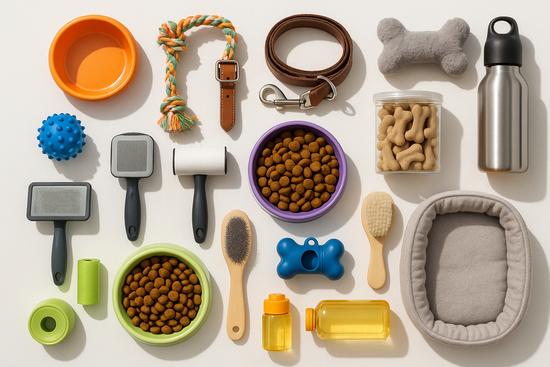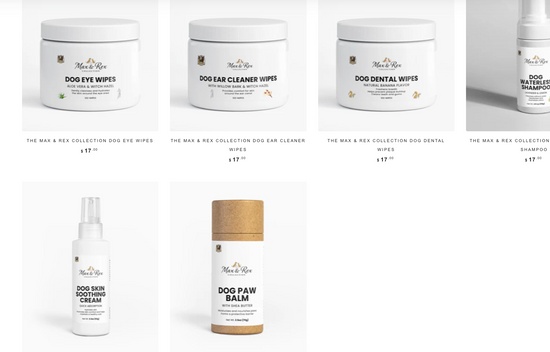LukeWelcoming a pet into your home is an exciting adventure. But a happy, healthy animal requires thoughtful planning and daily caring routines. This guide dives into practical tips and pet essentials that help anyone create a comfortable, secure environment tailored to every furry (or feathered!) companion’s needs.
Understanding Pet Essentials: What Every Pet Needs
Every pet, whether dog, cat, rabbit, or bird, deserves a home environment fitted with the right essentials. These basics go beyond food and water; pet essentials include everything necessary for your pet’s comfort, safety, and enrichment.
- Quality food and clean water: Always provide fresh, species-appropriate meals.
- Shelter: A comfortable resting area suited to your pet’s size and habits.
- Hygiene supplies: Litter boxes, grooming tools, and waste bags for cleanliness.
- Identification: Tags, microchips, and collars for safety.
- Stimulation: Toys, interactive games, or scratching posts to fight boredom.
- Healthcare: Regular vet visits, medicines, and preventive care are non-negotiable.
- Training aids: Leashes, harnesses, and treats for positive reinforcement.
Investing in these pet essentials forms the backbone of responsible pet ownership, ensuring both physical and emotional wellbeing.
Creating a Pet-Friendly Home: Safe, Practical, and Welcoming
Designing a living space with your pet in mind prevents accidents and boosts the happiness of the whole household. Small changes can make a big difference in how safe and enjoyable your environment becomes.
- Store cleaning chemicals and medications out of reach.
- Secure trash cans with lids to avoid accidental ingestion.
- Avoid loose wires and choking hazards.
- Use child-proof latches on cabinets.
- Place cozy beds or perches in calm, draft-free corners.
A pet-friendly home means thinking ahead about flooring, decor, and room access:
- Choose easy-to-clean rugs and slip-resistant mats.
- Use washable furniture covers.
- Install gates to restrict off-limit areas if necessary.
- Consider indoor plants carefully. Some, like lilies and sago palms, are toxic to pets.
By creating defined sleeping, eating, and play spaces, your pet learns boundaries and feels a secure sense of territory.
Pet Care Routines: Daily, Weekly, and Seasonal Essentials
Caring for a pet involves thoughtful habits that become second nature over time. Focus on daily, weekly, and seasonal care routines to cover all bases.
Daily Essentials
- Fresh food and water: Replace and monitor consumption.
- Litter box scooping or yard clean-up: Maintain clean toilet areas.
- Brisk walks or active playtime: Meet exercise needs.
- Quick grooming: Brush fur and check eyes/ears for any issues.
- Medication and supplements: Administer as prescribed by your vet.
Weekly To-Dos
- Deep cleaning of bedding, cages, or tanks.
- Teeth brushing or dental treat distribution.
- Thorough coat inspection for ticks, fleas, or skin irritations.
- Wash favorite toys and sanitize feeding bowls.
Seasonal Adjustments
- Update flea, tick, and heartworm prevention as required.
- Adjust bedding and environment in extreme weather.
- Seek professional grooming.
- Review vaccination records and health check-ups.
Consistency in these routines helps you catch minor issues early before they develop into larger health concerns.
Enrichment and Bonding: Beyond the Basics
Every animal craves more than just their physical needs met. Mental stimulation is one of the overlooked yet critical pet essentials. Daily enrichment strengthens your bond and keeps behavior issues at bay.
- Rotate interactive toys or puzzles to keep interest piqued.
- Hide food or treats to tap into natural hunting instincts.
- Try scent games, agility courses, or new walking routes.
- Teach simple tricks or commands to build communication skills.
For cats, scratching posts and window perches offer entertainment and territory marking. Dogs love chew toys and socialization at parks. Birds appreciate safe, chewable items and new perches to explore. Tailor enrichment activities to your pet’s age, species, and personality for the perfect balance of stimulation and relaxation.
Addressing Common Pet Challenges at Home
Even the most prepared owner faces challenges. Whether it’s separation anxiety, housetraining mishaps, or destructive chewing, routine and preparation are your best tools.
- For anxious pets: Try white noise, anti-anxiety vests, or leave a worn T-shirt nearby.
- For chewers: Supply a range of textures and swap toys regularly.
- For accidents: Use enzymatic cleaners to eliminate odors and prevent repeat offenses.
Never punish accidents harshly. Positive reinforcement with treats, praise, or play is always more effective in encouraging good behavior.
If problems persist, consult your veterinarian or a certified trainer. They may recommend specialized routines, products, or even medical assessment.
Pet Essentials Checklist: Must-Haves for Every Home
To simplify your preparation, here’s a practical checklist of pet essentials that suits most households:
- Nutritious pet food suitable for your animal’s life stage.
- Clean, non-tip water bowls or pet fountains.
- Comfortable bedding adapted to your pet’s preferences.
- Food and treat storage containers, tightly sealed.
- Safe, engaging toys for mental and physical stimulation.
- Litter box or potty training pads, plus related cleaning supplies.
- Grooming tools: Brushes, nail clippers, and gentle shampoos.
- ID tags, collar, harness, and a durable leash.
- Transportation carrier or crate.
- First-aid kit stocked with basic medical supplies.
- Regular-use medications and veterinary documents.
- Cleaning products safe for pets.
Customize your checklist as your pet ages or if specific needs arise. Keeping these pet essentials stocked at home guarantees you’re always ready for anything.
Introducing New Pets: Smooth Transitions and Socialization
Bringing a new pet home is exciting, but it can be overwhelming if not approached with care. Preparation and patience are key pet essentials for this milestone.
- Prepare a quiet, dedicated space for your new arrival.
- Allow gradual, supervised introductions to other animals.
- Avoid overwhelming with too many visitors or unfamiliar scents at first.
- Reward calm behavior and set predictable feeding or play schedules.
Observe your pet’s reactions and adjust the environment for comfort. Socialization to people, pets, and noises during the first weeks shapes your animal’s lifelong temperament. For adopted pets, give them time to decompress and build trust.
Travel and Outdoor Time: Keeping Pets Safe Beyond Home
Venturing outdoors or traveling with pets requires different pet essentials for safety and convenience.
- Carriers or crates should allow easy movement but prevent escape.
- Use a harness, not just a collar, for walks to prevent injuries.
- Take collapsible water bowls, familiar toys, and blankets from home for comfort.
- Always check identification is up-to-date in case of unexpected separation.
For longer trips, research pet-friendly accommodations and pack enough supplies, including waste bags, food, and medications. Safety first ensures every excursion is as joyful and stress-free as possible.
Conclusion
Creating a happy, healthy home for your pet is all about thoughtful preparation and daily care with the right pet essentials. With these practical tips, you’ll build a secure, loving environment where every animal—and human—thrives. Explore more ways to elevate your pet’s wellbeing and enjoy all the joys of pet parenthood.





